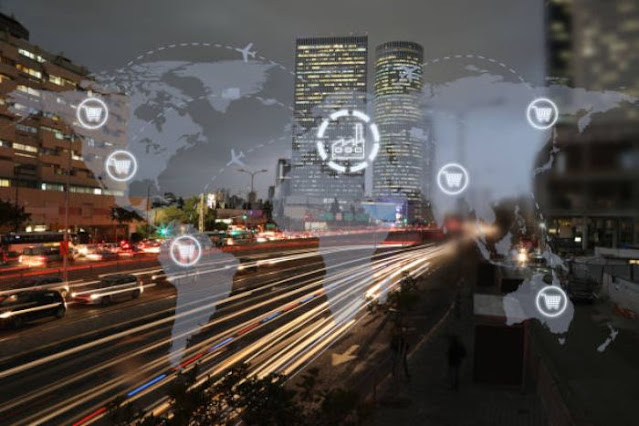Featured
- Get link
- X
- Other Apps
Transformative Influence of AI Technology in Healthcare
In recent years, Artificial Intelligence (AI) has emerged as a revolutionary force in healthcare, significantly transforming the industry's landscape. With its ability to process vast amounts of data, identify patterns, and make predictions, AI holds the promise of enhancing diagnostic accuracy, streamlining workflows, and ultimately improving patient outcomes. This article discovers the multifaceted role of AI technology in healthcare and its potential to revolutionize the way medical services are delivered.
Diagnosis and Predictive
Analytics:
One of the
most significant contributions of AI in healthcare is its role in diagnosis and
predictive analytics. AI algorithms can study medical images, such as X-rays,
MRIs, and CT scans, with remarkable accuracy. This not only speeds up the
diagnostic process but also reduces the likelihood of human error. Machine
learning models can learn from vast datasets to identify subtle patterns and
anomalies that may be challenging for human practitioners to discern. Early detection
of diseases, facilitated by AI, can lead to more effective interventions and
improved patient outcomes.
Personalized Medicine:
AI is
playing a pivotal role in advancing the concept of personalized medicine. By
analyzing a patient's genetic makeup, lifestyle, and environmental factors, AI
can help tailor treatment plans that are uniquely suited to an individual's
needs. This targeted approach not only enhances the effectiveness of treatments
but also minimizes adverse reactions and side effects. The ability of AI to
sift through large datasets quickly enables healthcare providers to make
data-driven decisions, optimizing treatment strategies for each patient.
Workflow Optimization:
AI
technologies are streamlining healthcare workflows, making them more efficient
and cost-effective. Administrative tasks, such as scheduling appointments, handling
electronic health records (EHRs), and billing, can be automated, freeing up
healthcare professionals to attention on patient care. Natural Language
Processing (NLP) allows AI systems to extract valuable information from
unstructured data in medical records, enabling faster and more accurate
decision-making.
Virtual Health Assistants:
The
integration of virtual health assistants powered by AI is revolutionizing patient
engagement and care management. Chatbots and virtual assistants can provide
patients with instant access to information, schedule appointments, and offer
guidance on medications and post-treatment care. This not only enhances patient
satisfaction but also reduces the burden on healthcare staff, allowing them to
allocate more time to critical tasks.
Drug Discovery and
Development:
AI is
accelerating the drug discovery and development process. By analyzing vast
datasets related to molecular structures, genetic information, and clinical
trial results, AI algorithms can identify potential drug candidates more
efficiently than traditional methods. This not only reduces the time and costs
associated with drug development but also opens up new possibilities for the
treatment of various diseases. AI-driven drug discovery holds the promise of
bringing novel therapies to market at a faster pace.
Remote Patient Monitoring:
AI is
enabling continuous monitoring of patients outside traditional healthcare
settings. Wearable devices equipped with AI algorithms can track vital signs,
detect anomalies, and alert healthcare providers to potential issues in
real-time. This proactive approach to patient monitoring can lead to early
intervention, reducing hospital readmissions and improving overall patient
care.
Conclusion:
The
integration of AI technology into healthcare is ushering in a new era of
innovation and efficiency. From improving diagnostic accuracy to streamlining
administrative tasks and revolutionizing drug discovery, AI is proving to be a
transformative force in the industry. While challenges such as data privacy,
ethical considerations, and the need for regulatory frameworks exist, the
potential benefits far outweigh the drawbacks. As technology continues to
evolve, the collaborative efforts of healthcare professionals, researchers, and
technologists will be crucial in harnessing the full potential of AI for the
betterment of healthcare worldwide.
- Get link
- X
- Other Apps
Popular Posts
How Technological Innovation Has Influenced Globalization
- Get link
- X
- Other Apps
How Drones can Minimize Cost and Recover Efficiency in Solar Power Plant Installation and Maintenance
- Get link
- X
- Other Apps


Comments
Post a Comment